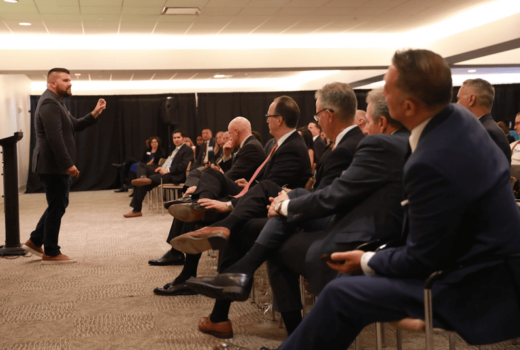EU2020, nu of nooit

In haar e-brief ‘If not now, when?’ geeft zij een pakkend aviesvoor de ‘EU2020 top’ die dezer dagen in Brussel bijeenkomt. Enkelevan de rake obervaties daarin leest u in dit artikel. Het volledigestuk vindt u
“The truth is that simply cutting expenditure or raising taxes isno convincing recipe for sustaining prosperity in the long run, norare they the way to lay the foundations for future growth. Ifanything, this should be a time of investment – investment in areasthat we know are crucial to future success, such as education,innovation, science, information and communication technologies, aswell as the larger transformation of the state itself, which afterall accounts for 40-50% of gross domestic product in most EU memberstates.
Our leaders do a real disservice to their citizens if they usesuch populist rhetoric and easy excuses, for it only makes itharder to accept the necessary changes. Does anyone need to retirelater because the market commands it or is it really because oursocial model needs to be made sustainable for our children andgrandchildren? Do citizens want a more flexible labour market toappease speculators or can they be made to accept and understandthat more dynamic systems have better social outcomes, both beforeand during the crisis (compare unemployment rates in theNetherlands and Denmark with those of Spain, for instance)?
What is largely overlooked in the debate about the economicsuccess of Scandinavia is the large contribution that an efficient,reform-oriented public sector has played. For instance, Greece hasfour times as many teachers as Finland, but with dramaticallypoorer educational outcomes. So the question is not necessarilyabout “big” versus “small” but more about ‘quality’ versus’quantity.’ In order to assess these questions, it will beimperative to create new benchmarks and performance indicators andallow for greater transparency in how governments work and operate,both areas where the EU could make profound and lastingcontributions.
With enormous pressures on public budgets across the EU,including in Brussels, there is an urgent need to redesignfinancial assistance programmes from an emphasis on subsidies to anemphasis on strategic and smart investments. These strategicinvestments should be made where a good return can be expected – beit in growth, employment, innovation – and should be of limitedduration in order not to breed dependency and foster politicalpatronage.”
Meest Gelezen
Vrouwen houden universiteit draaiende, maar krijgen daarvoor geen waardering
Wederom intimidatie van journalisten door universiteit, nu in Delft
‘Burgerschapsonderwijs moet ook verplicht worden in hbo en wo’
Raad van State: laat taaltoets nog niet gelden voor hbo-opleidingen
Hbo-docent wil wel rolmodel zijn, maar niet eigen moreel kompas opdringen



